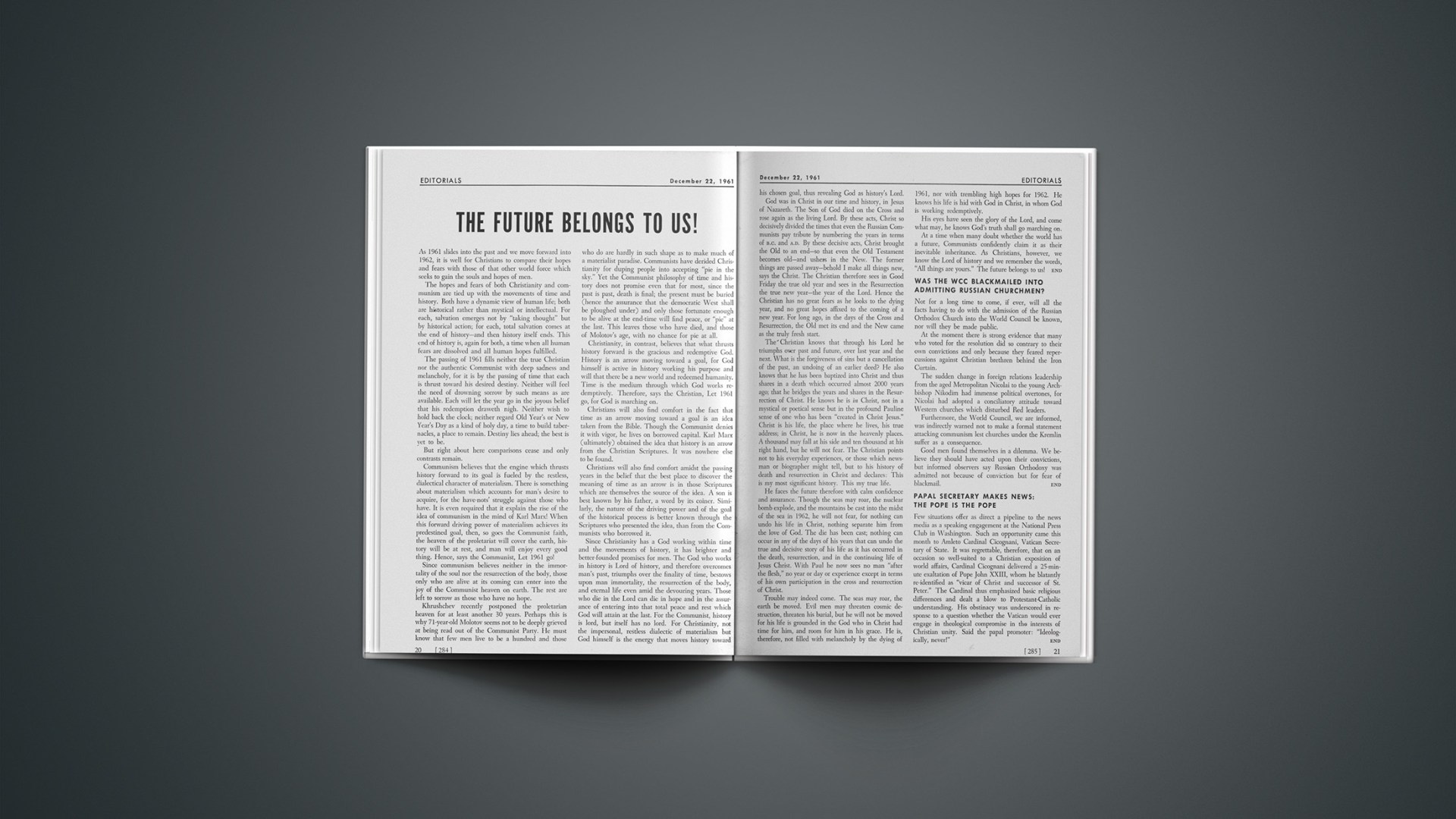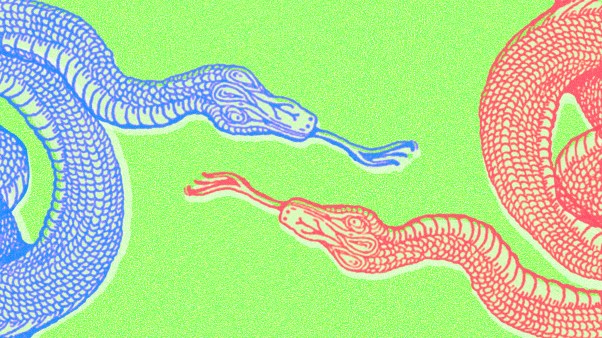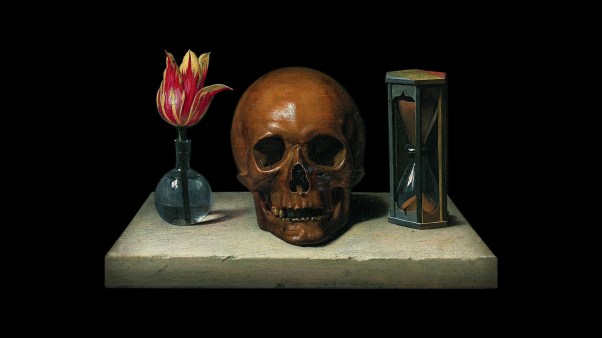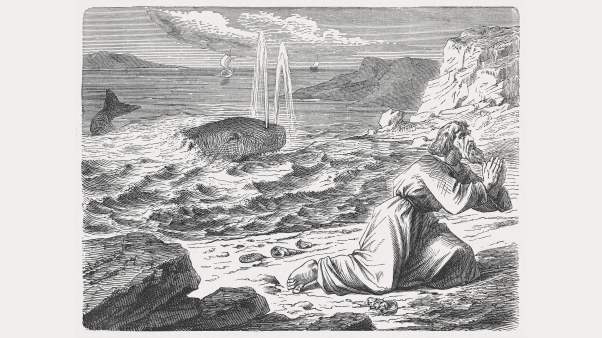As 1961 slides into the past and we move forward into 1962, it is well for Christians to compare their hopes and fears with those of that other world force which seeks to gain the souls and hopes of men.
The hopes and fears of both Christianity and communism are tied up with the movements of time and history. Both have a dynamic view of human life; both are historical rather than mystical or intellectual. For each, salvation emerges not by “taking thought” but by historical action; for each, total salvation comes at the end of history—and then history itself ends. This end of history is, again for both, a time when all human fears are dissolved and all human hopes fulfilled.
The passing of 1961 fills neither the true Christian nor the authentic Communist with deep sadness and melancholy, for it is by the passing of time that each is thrust toward his desired destiny. Neither will feel the need of drowning sorrow by such means as are available. Each will let the year go in the joyous belief that his redemption draweth nigh. Neither wish to hold back the clock; neither regard Old Year’s or New Year’s Day as a kind of holy day, a time to build tabernacles, a place to remain. Destiny lies ahead; the best is yet to be.
But right about here comparisons cease and only contrasts remain.
Communism believes that the engine which thrusts history forward to its goal is fueled by the restless, dialectical character of materialism. There is something about materialism which accounts for man’s desire to acquire, for the have-nots’ struggle against those who have. It is even required that it explain the rise of the idea of communism in the mind of Karl Marx! When this forward driving power of materialism achieves its predestined goal, then, so goes the Communist faith, the heaven of the proletariat will cover the earth, history will be at rest, and man will enjoy every good thing. Hence, says the Communist, Let 1961 go!
Since communism believes neither in the immortality of the soul nor the resurrection of the body, those only who are alive at its coming can enter into the joy of the Communist heaven on earth. The rest are left to sorrow as those who have no hope.
Khrushchev recently postponed the proletarian heaven for at least another 30 years. Perhaps this is why 71-year-old Molotov seems not to be deeply grieved at being read out of the Communist Party. He must know that few men live to be a hundred and those who do are hardly in such shape as to make much of a materialist paradise. Communists have derided Christianity for duping people into accepting “pie in the sky.” Yet the Communist philosophy of time and history does not promise even that for most, since the past is past, death is final; the present must be buried (hence the assurance that the democratic West shall be ploughed under) and only those fortunate enough to be alive at the end-time will find peace, or “pie” at the last. This leaves those who have died, and those of Molotov’s age, with no chance for pie at all.
Christianity, in contrast, believes that what thrusts history forward is the gracious and redemptive God. History is an arrow moving toward a goal, for God himself is active in history working his purpose and will that there be a new world and redeemed humanity. Time is the medium through which God works redemptively. Therefore, says the Christian, Let 1961 go, for God is marching on.
Christians will also find comfort in the fact that time as an arrow moving toward a goal is an idea taken from the Bible. Though the Communist denies it with vigor, he lives on borrowed capital. Karl Marx (ultimately) obtained the idea that history is an arrow from the Christian Scriptures. It was nowhere else to be found.
Christians will also find comfort amidst the passing years in the belief that the best place to discover the meaning of time as an arrow is in those Scriptures which are themselves the source of the idea. A son is best known by his father, a word by its coiner. Similarly, the nature of the driving power and of the goal of the historical process is better known through the Scriptures who presented the idea, than from the Communists who borrowed it.
Since Christianity has a God working within time and the movements of history, it has brighter and better-founded promises for men. The God who works in history is Lord of history, and therefore overcomes man’s past, triumphs over the finality of time, bestows upon man immortality, the resurrection of the body, and eternal life even amid the devouring years. Those who die in the Lord can die in hope and in the assurance of entering into that total peace and rest which God will attain at the last. For the Communist, history is lord, but itself has no lord. For Christianity, not the impersonal, restless dialectic of materialism but God himself is the energy that moves history toward his chosen goal, thus revealing God as history’s Lord.
God was in Christ in our time and history, in Jesus of Nazareth. The Son of God died on the Cross and rose again as the living Lord. By these acts, Christ so decisively divided the times that even the Russian Communists pay tribute by numbering the years in terms of B.C. and A.D. By these decisive acts, Christ brought the Old to an end—so that even the Old Testament becomes old—and ushers in the New. The former things are passed away—behold I make all things new, says the Christ. The Christian therefore sees in Good Friday the true old year and sees in the Resurrection the true new year—the year of the Lord. Hence the Christian has no great fears as he looks to the dying year, and no great hopes affixed to the coming of a new year. For long ago, in the days of the Cross and Resurrection, the Old met its end and the New came as the truly fresh start.
The Christian knows that through his Lord he triumphs over past and future, over last year and the next. What is the forgiveness of sins but a cancellation of the past, an undoing of an earlier deed? He also knows that he has been baptized into Christ and thus shares in a death which occurred almost 2000 years ago; that he bridges the years and shares in the Resurrection of Christ. He knows he is in Christ, not in a mystical or poetical sense but in the profound Pauline sense of one who has been “created in Christ Jesus.” Christ is his life, the place where he lives, his true address; in Christ, he is now in the heavenly places. A thousand may fall at his side and ten thousand at his right hand, but he will not fear. The Christian points not to his everyday experiences, or those which newsman or biographer might tell, but to his history of death and resurrection in Christ and declares: This is my most significant history. This my true life.
He faces the future therefore with calm confidence and assurance. Though the seas may roar, the nuclear bomb explode, and the mountains be cast into the midst of the sea in 1962, he will not fear, for nothing can undo his life in Christ, nothing separate him from the love of God. The die has been cast; nothing can occur in any of the days of his years that can undo the true and decisive story of his life as it has occurred in the death, resurrection, and in the continuing life of Jesus Christ. With Paul he now sees no man “after the flesh,” no year or day or experience except in terms of his own participation in the cross and resurrection of Christ.
Trouble may indeed come. The seas may roar, the earth be moved. Evil men may threaten cosmic destruction, threaten his burial, but he will not be moved for his life is grounded in the God who in Christ had time for him, and room for him in his grace. He is, therefore, not filled with melancholy by the dying of 1961, nor with trembling high hopes for 1962. He knows his life is hid with God in Christ, in whom God is working redemptively.
His eyes have seen the glory of the Lord, and come what may, he knows God’s truth shall go marching on.
At a time when many doubt whether the world has a future, Communists confidently claim it as their inevitable inheritance. As Christians, however, we know the Lord of history and we remember the words, “All things are yours.” The future belongs to us!
Was The Wcc Blackmailed Into Admitting Russian Churchmen?
Not for a long time to come, if ever, will all the facts having to do with the admission of the Russian Orthodox Church into the World Council be known, nor will they be made public.
At the moment there is strong evidence that many who voted for the resolution did so contrary to their own convictions and only because they feared repercussions against Christian brethren behind the Iron Curtain.
The sudden change in foreign relations leadership from the aged Metropolitan Nicolai to the young Archbishop Nikodim had immense political overtones, for Nicolai had adopted a conciliatory attitude toward Western churches which disturbed Red leaders.
Furthermore, the World Council, we are informed, was indirectly warned not to make a formal statement attacking communism lest churches under the Kremlin suffer as a consequence.
Good men found themselves in a dilemma. We believe they should have acted upon their convictions, but informed observers say Russian Orthodoxy was admitted not because of conviction but for fear of blackmail.
Papal Secretary Makes News: The Pope Is The Pope
Few situations offer as direct a pipeline to the news media as a speaking engagement at the National Press Club in Washington. Such an opportunity came this month to Amleto Cardinal Cicognani, Vatican Secretary of State. It was regrettable, therefore, that on an occasion so well-suited to a Christian exposition of world affairs, Cardinal Cicognani delivered a 25-minute exaltation of Pope John XXIII, whom he blatantly re-identified as “vicar of Christ and successor of St. Peter.” The Cardinal thus emphasized basic religious differences and dealt a blow to Protestant-Catholic understanding. His obstinacy was underscored in response to a question whether the Vatican would ever engage in theological compromise in the interests of Christian unity. Said the papal promoter: “Ideologically, never!”










